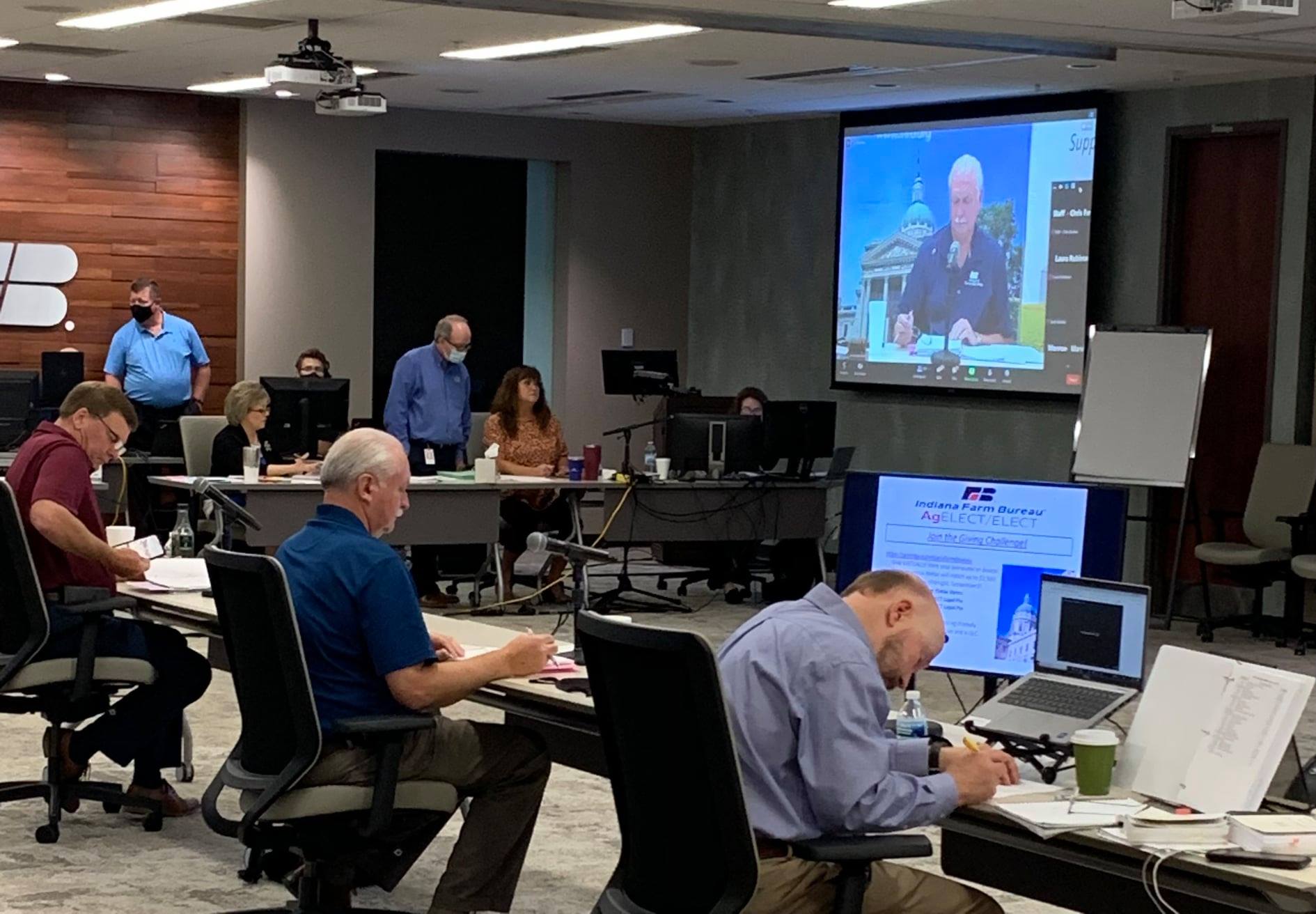
Indiana Farm Bureau member delegates met virtually on Saturday, Aug. 28 to determine the policy positions of the organization for 2022.
The delegate body consisted of 225 farmers and agribusiness professionals from across the state. The members discussed several issues including broadband internet access, climate change and carbon credits, renewable energy, public health, and education.
“The delegate session provides the opportunity for our members to create policy positions for issues impacting agriculture and rural communities,” said Randy Kron, INFB president. “It’s the second year in a row the event has been conducted virtually, which has allowed us to take the necessary safety precautions, allowing delegates from across the state to easily take part in this important step in our grassroots policy process.”
INFB’s policy development process begins at the local level. County Farm Bureaus make policy suggestions and recommend changes that are then debated by the resolutions committee before being discussed at the delegate session. This process follows the grassroots structure and ensures that all members have a chance to voice their opinions.
“It’s all about putting forth policy at the local, state and national levels that benefits the agricultural community,” Kron said. “The next step is establishing policy priorities and engaging with legislators at the Statehouse to make sure agriculture has a seat at the table during the 2022 legislative session.”
Delegates continued to support access to rural broadband, which was INFB’s top legislative priority in 2021. INFB has promoted the Broadband Speed Test, a crowd-sourced internet speed test that identifies what areas of the state are most in need of reliable, affordable access to broadband service. This data will be available to local governments and organized broadband groups to analyze potential solutions and aid their applications for Indiana’s Next Level Connections Grants and a variety of federal grants.
Delegates also added language to the INFB policy book around the development of voluntary, transparent and nationwide carbon markets, as well as transparency and education for farmer producers when developing carbon credit programs. Additionally, language was added concerning local control of siting on wind and solar issues.
“Much of the conversation centered around the support of local control at this year’s delegate session, specifically regarding wind and solar energy projects,” said Andy Tauer, INFB executive director of public policy. “There also was a lot of discussion around the future of biofuels as more modes of transportation shift to electric. It poses the question of how Indiana agriculture will make sure biofuels are an integral part of Indiana’s energy strategy as the need for ethanol and biodiesel decreases.”
Delegates also voted for members who will represent INFB at the 2022 American Farm Bureau Federation Convention. The AFBF Convention will be held in January in Atlanta, Georgia. The chosen INFB delegates will be discussing policy positions for the national organization with representatives from all 50 states and Puerto Rico.
Four county Farm Bureau presidents were elected as delegates for the AFBF Convention:
- Richard Kelley, Brown County
- Tiffany Ludwig, Clay County
- Lis McDonnell, Henry County
- Jonathan Shannon, Montgomery County
Over the next few weeks, the INFB board of directors will determine the priority policies for the 2022 state legislative session. Federal priorities are set at the AFBF level based on input from all state Farm Bureaus. Now, the INFB public policy team will work with regional managers, district directors and county Farm Bureau members to set the organization’s top policy priorities for the next year.
More information about INFB’s policy process can be found at www.infb.org/public-policy/policy-development.
